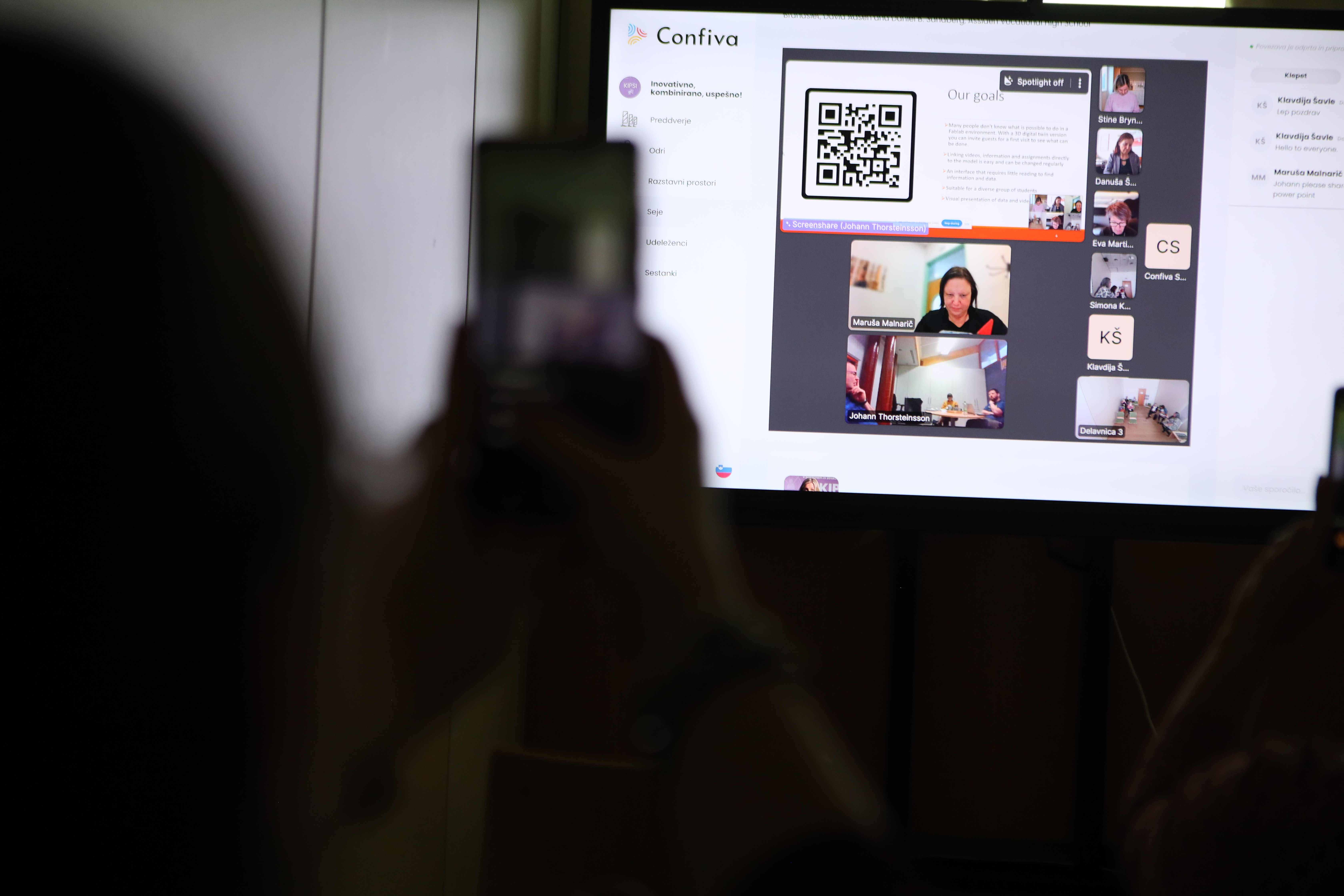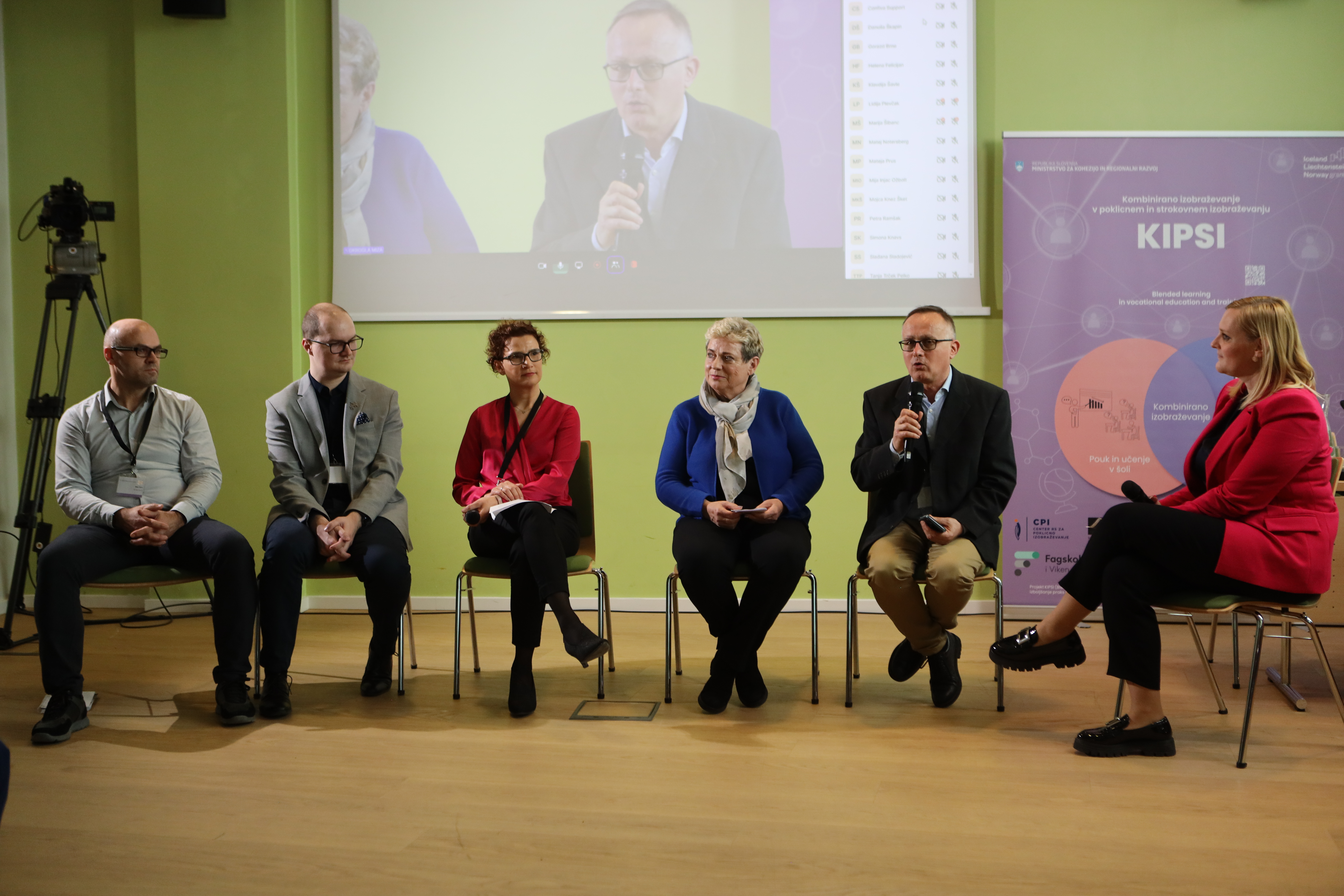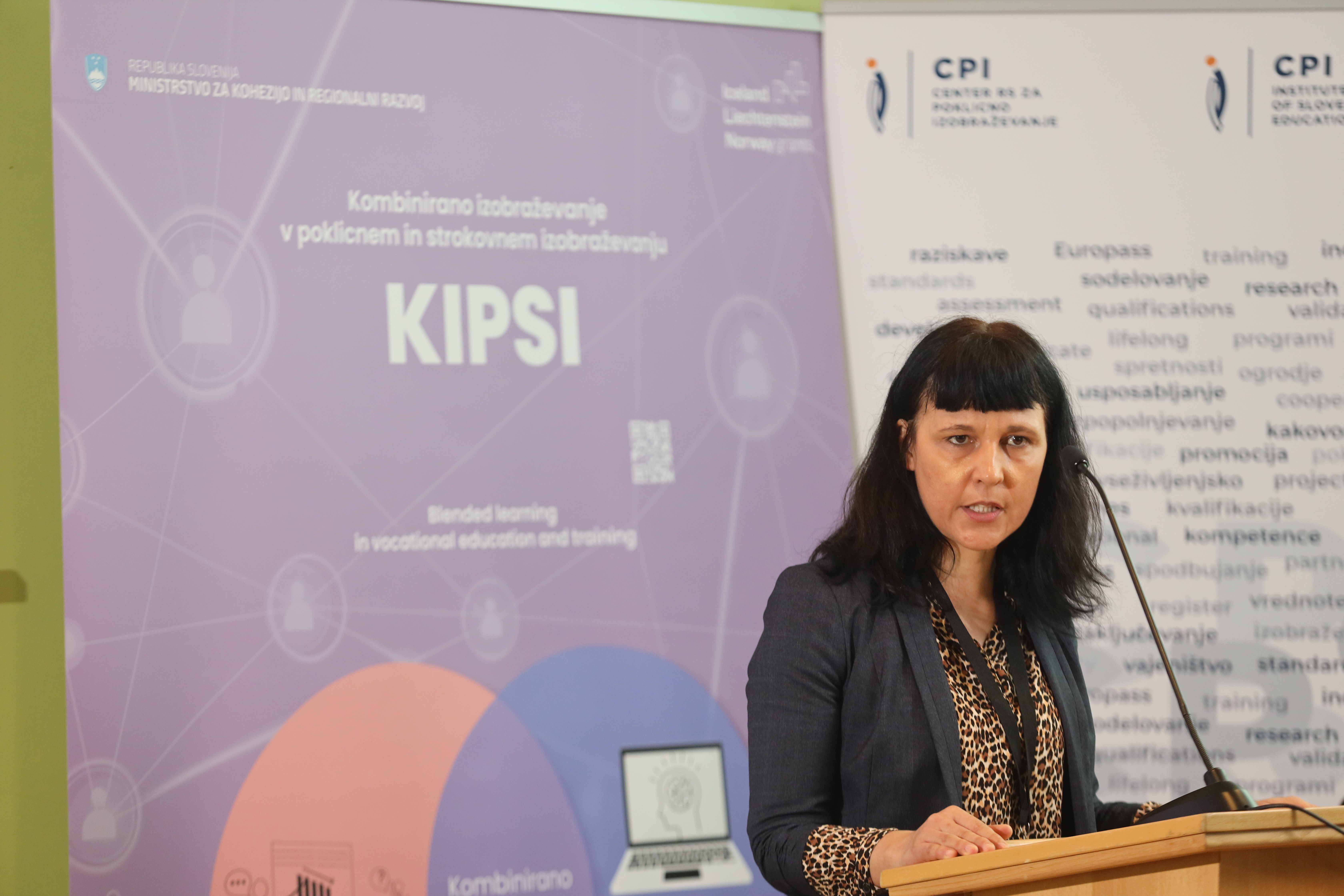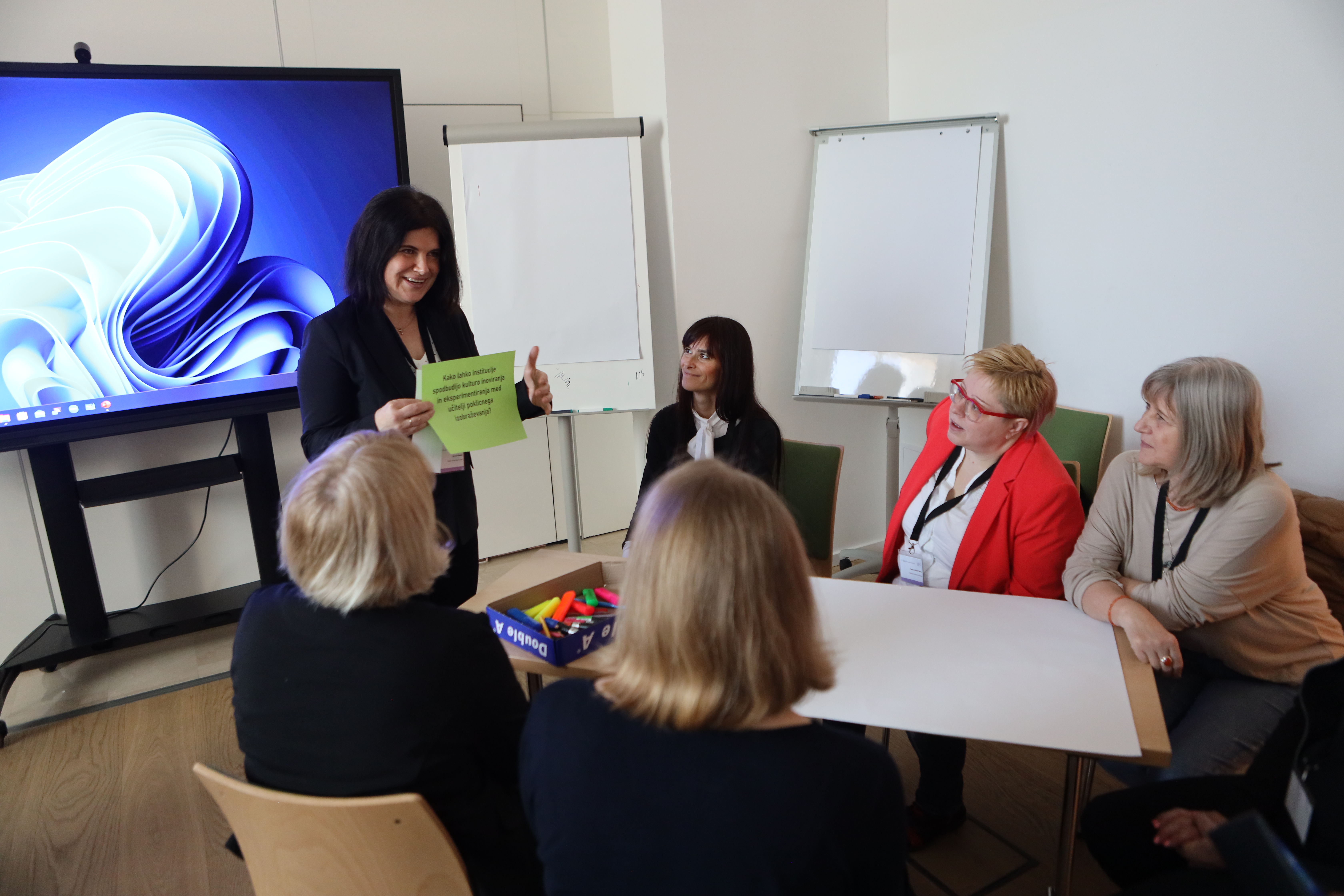
13 March 2024 – The BlendVET project was initiated amid the unpredictable COVID situation to enhance the digital and pedagogical competencies of teachers for blended learning in vocational and professional schools. Project partners emphasise that digitalisation offers not only challenges but also significant opportunities that we must learn to leverage. Digital competencies are particularly crucial for the society.
At the closing public event of the BlendVET project Aleksandar Sladojević, Acting Director of the Institute of the RS for Vocational Education and Training, who was responsible for the project management, said “The extensive digitalisation presents numerous opportunities. It poses a positive challenge to the economy, society, and the education system. Vocational education must play a pivotal role in fostering a solid, sustainable, and prosperous society, alongside an efficient economy. We appreciate the European Economic Area (EEA) Financial Mechanism and the experience of foreign partners, as well as the initiative of the Ministry of Education to take up the challenge of blended learning.”

“Two-thirds of young people are enrolled in vocational and technical education, making its development paramount. After successfully overcoming the challenge of distance education during the pandemic, now is the time to share knowledge to bolster vocational training’s resilience and contribute to the economy and society’s journey towards sustainability,” added Director General of the The Upper Secondary, Short-Cycle Higher Vocational and Adult Education Directorate at the Ministry of Education, Branka Hrast Debeljak, MSc.
The greatest value lies not in the tools but in the knowledge gained
The implementation of the unique BlendVET project was made possible by the Ministry of Cohesion and Regional Development through the EEA Grants.
Jadranka Plut, Head of the Financial Mechanisms Sector at the Ministry of Cohesion and Regional Development, noted “The BlendVET project addresses two critical challenges: the insufficient digital skills among teachers and students. These competencies are becoming crucial for flexible learning models, which are increasingly important for lifelong learning. On the other hand, we would like to point out that, although modern tools are useful, the knowledge we acquire is our greatest asset.”

The BlendVET project is primarily aimed at developing and introducing pedagogical approaches where digital technology supports student learning, rather than solely introducing digital technology.
Technology influences our behaviour
“Technology significantly impacts and alters our society, influencing our behaviour. We are transitioning our data to the cloud without necessarily knowing its location, and young people are less inclined towards the security of permanent jobs. Hence, it’s crucial to understand that introducing new technologies into the classroom requires careful consideration,” stated Doc. Andrej Flogie, PhD, from the Faculty of Natural Sciences and Mathematics at the University of Maribor.
As emphasised during the BlendVET final conference, responsibility rests with all stakeholders. Merely providing infrastructure, resources, and qualified teachers is insufficient; the transition must be complementary, encompassing all of society. Failing to undertake this transformation together would result in merely replacing technology and tools, which alone do not bring added value and change to society.
More details are available on the web page BlendVET.

The BlendVET project is co-created by the project promoter, the Institute of the RS for Vocational Education and Training, with project partners the University of Ljubljana, Faculty of Arts, Upper-secondary VET school Trbovlje, School centre Novo mesto, School centre Celje, Upper-secondary VET School Koper, Østfold University College (NOR), Åssiden upper secondary school (NOR), Viken Higher Vocational College (NOR), University of Akureyri (ISL), and Akureyri comprehensive college (ISL).
Source: Project BlendVET